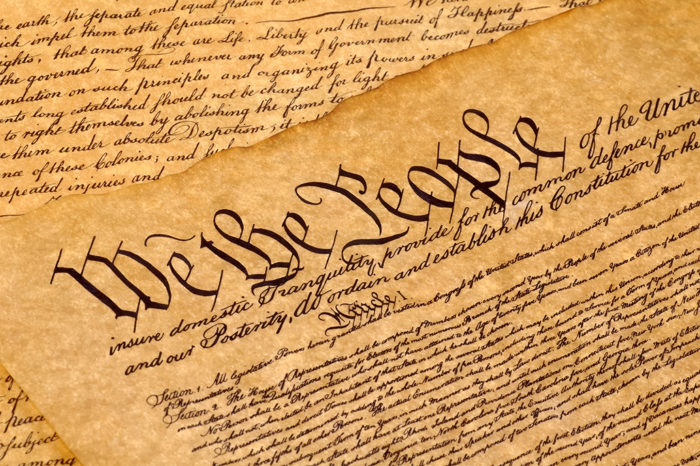Jul 04 2019
Pseudodemocracy

Today is the Fourth of July. First, I want to say happy birthday to my two brothers, Bob and Joe, fraternal twins who were born on the 4th. But also happy birthday to America. The 4th is always a good time to reflect on what the American experiment in constitutional democracy really means.
I tend to look at it this way – process is more important than outcome. This is true in the same way it is true for science and critical thinking. Science is a system of valid methods used to build an empirical model of reality. In science, using proper methods is what counts, not the outcome of the experiment. When you put the outcome first, and then use whatever methods necessary to generate the desired outcome, that’s pseudoscience.
In the same way we have a system of government that puts the rule of law, with the Constitution being the highest law, above any particular outcome. It is supposed to be a peaceful and fair method of determining things like law, justice, rights, and the expenditure of common resources. It is valid in that it derives from the people with fair and even representation. Obviously the system is not perfect, partly because people are not perfect, but also because running a country with over 300 million people is horrifically complicated and must, by necessity, involve numerous trade-offs.
But the idea of the Constitution is that we have a system, and if everyone follows the system then at least there are checks and balances, there is a system for correction of error, people have a way to make their will felt, and the whole thing grinds messily on. A friend of mine recently observed, however, that what really has surprised and even frightened him over the last two years is the realization that the whole system is much more of a gentleman’s agreement than he ever imagined. I tend to agree.
I would go a step further – I think democracy itself, almost by necessity, is a polite social agreement that only works if a critical mass of people agree to play mostly by the spirit of the rules. This is true of any social engagement. The rules are only rules because they are mutually agreed upon, people do their duty in policing and enforcing the rules, and enough people, out of respect for the system, are willing to put the system itself ahead of any particular outcome. The same is true in science – it only works if scientists understand and agree to play by the rules. But those rules can easily be twisted and distorted, and then you have something like alternative medicine – an elaborate system with increasingly all of the trappings of academia and science, but the entire thing is a giant fraud because it does not follow the true methods of science.
There are pseudodemocracies around the world that are the same – they have the trappings of democracy, but don’t follow the true spirit of democratic or representative government. The patina of democracy is just a cover for an authoritarian dictator.
The US is far from that, but just not as far as perhaps most of us imagined. It is amazing how quickly we were able to slip into the gray zone of pseudodemocracy. In the past I would have said this kind of behavior was due to putting ideology above country or reason, but I now think it’s more accurate to say that it’s partisanship, which trumps even ideology. We are now a country of two warring tribes, with decreasing common ground, waging assaults against the system for partisan advantage (as I always have to say – this does not imply symmetry of the two sides). The spirit of friendly ideological competition within a common American democratic framework is giving way to what feels for many people like an existential struggle against an enemy – an enemy that many people feel is “evil.”
This leads to an “ends justify the means” mentality. We can bend the rules, sidestep convention, ignore the norms, make up transparent justifications, and act in increasingly brazen partisan ways, because all is justified in defeating the enemy. That, however, is a losing strategy. It ultimately defeats the very thing we should value most and should be fighting for – the system itself. No short term partisan advantage is worth shredding the rules that make American democracy what it is.
This is what I am thinking about this July 4th. Our recent experience reminds us of how fragile democracy can be. It can fail. It can fail if people fail. But for now we can take some solace in the realization that the framers did construct a fairly robust system, one that anticipated many of the potential pitfalls. We do have the power to fix our problems, we just have to do it. The system is robust – but it is not on autopilot. It only works if an informed citizenry participates and takes their responsibilities seriously.
Have a happy 4th.






